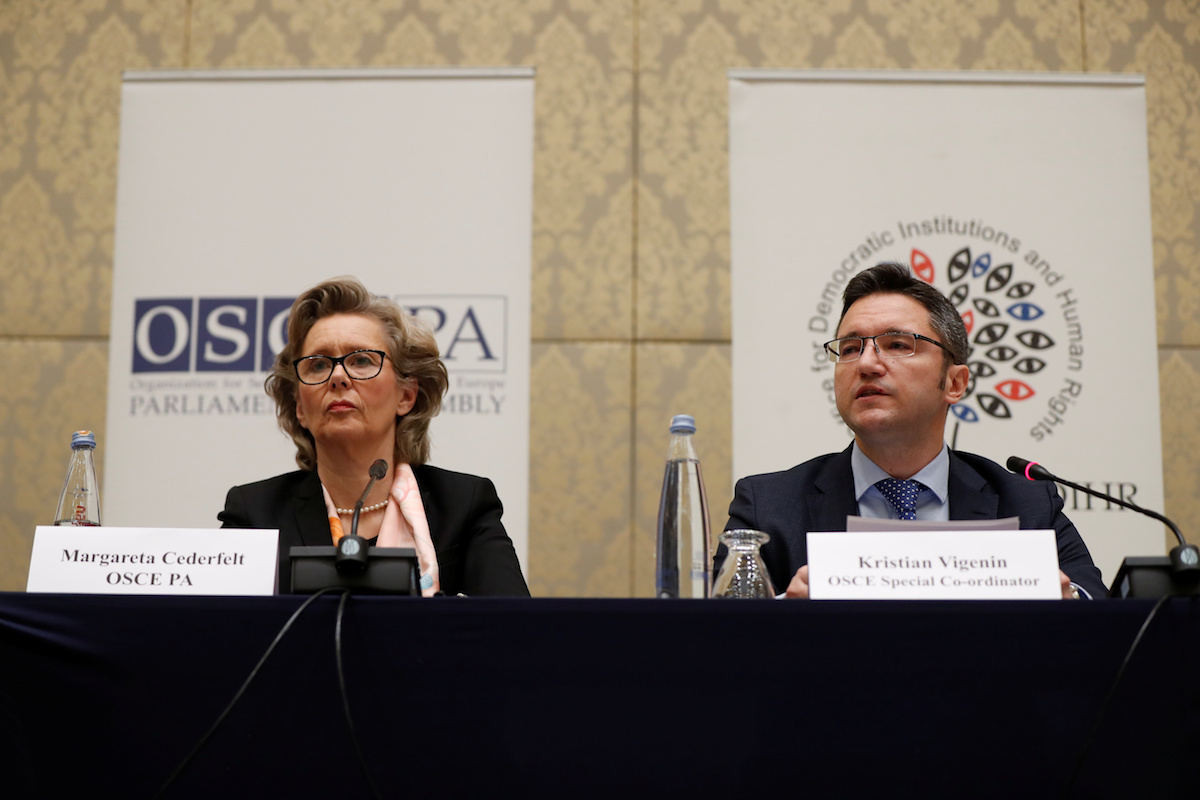International observers: Georgian elections were competitive, but not fair

“The presidential elections were held in a competitive environment and candidates freely ran their election campaigns. However, the elections themselves were not fair,” international observers concluded.
• Salome Zourabichvili elected Georgia’s fifth president
• Georgia goes back to the polls: all you need to know about today’s elections
At a joint press conference dedicated to the election results, international observers highlighted a number of issues, among them some which were not present in previous elections.
Observers noted that the authorities have further expanded the practice of using their administrative resources.
The statement says that during the election, the line that separates the party and the state was crossed which affected the voting process, and that the election campaign was held in a negative environment, which overshadowed the electoral process.
Observers drew attention to the unprecedentedly high level of use of hate speech on television, on social networks, in the appeals of the politicians themselves and in the speeches of their supporters. The observer mission noted that state representatives and high-ranking officials often spoke with the same language.
The mission also assessed the work of the media during the election period. According to observers, the media environment was also highly polarised, and the public broadcaster did not cope with the task of being independent.
It also notes that the candidates’ election campaigns were directed against each other, there was little room for the candidates’ own programmes and their plans in the event of a victory.
“Both candidates, both on paid and free political advertising on TV, were used for a negative campaign against their opponent rather than for advertising their own platform,” observers said.
Observers said that the election initiative of the authorities to write off bank debts of 600,000 Georgian citizens, as well as other moves such as increased salaries and housing for IDPs, were particularly gross violations of electoral law. The mission believes that it is dealing with bribery of the electorate.
“The statement of the authorities made before the second round about debt cancellation seems to be controversial, especially since a private foundation associated with the leader of the ruling party will be responsible,” said Andrei Hongko, head of the Parliamentary Assembly of the Council of Europe (PACE).
According to him, “an increase in the political role of money in a country where poverty is high and there are no effective control mechanisms does not contribute to increasing public confidence in democratic elections”.
Observers believe that despite the tension, the voting itself went on with all the necessary procedures for protection and in an organized environment. At the same time, they emphasized that on election day, the coordinators who worked at the polling stations, who had voter lists, and followed those who came to vote and who did not, worked at the polling stations. And this, according to observers, created tension.
• The mission consisting of the OSCE Democratic Institute and the Office for Human Rights (ODIHR), the OSCE Parliamentary Assembly (OSCE PA), the European Parliament (EP) and the Parliamentary Assembly of the Council of Europe (PACE) representatives will publish a final report on the presidential elections in Georgia in two months.
• The international observer mission consists of 215 representatives from 32 countries, among them 184 long-term and short-term from ODIHR, 11 parliamentarians and members of the OSCE Parliamentary Assembly, 10 from the European Parliament and five from Parliamentary Assembly of the Council of Europe.



















